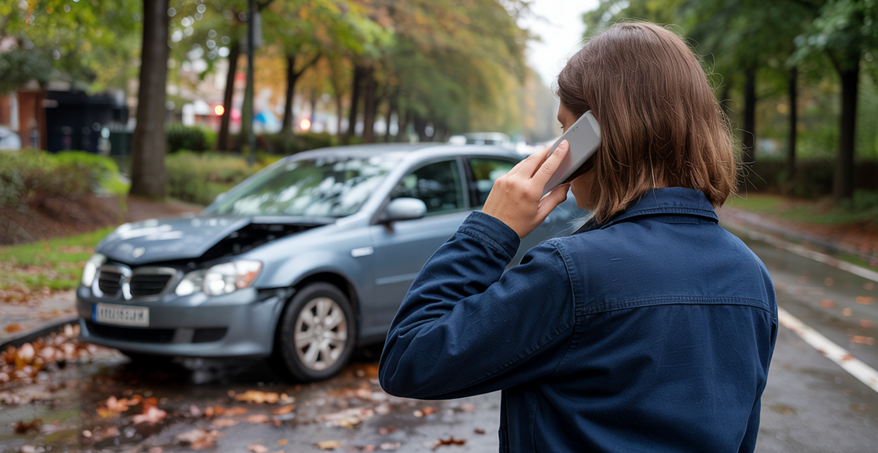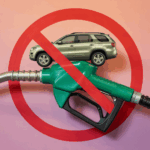Maximize your settlement by mastering the art of insurance negotiation!
When a car is declared a total loss after an accident, many drivers are shocked to discover that the insurance company’s first payout offer is often far below what they expect—or deserve. In 2025, with vehicle prices soaring and repair costs hitting all-time highs, understanding how to negotiate a totaled car settlement has never been more important.
Savvy negotiation can often mean the difference between thousands of dollars lost or recovered. Here’s how to make sure you get the full value for your vehicle after a crash.
What does “totaled” really mean in 2025?
A car is considered totaled when the estimated cost to repair it exceeds a certain percentage of its actual cash value (ACV). This threshold varies by state but typically falls between 60% and 80%.
For example:
-
In California, the threshold is 75%
-
In Florida, it’s 80%
-
In Texas, it’s determined by the “total loss formula,” meaning cost of repairs + salvage value must exceed ACV
Given that used car prices have surged by an average of 18% since 2022, insurance companies must calculate up-to-date ACVs, but many still base offers on outdated valuation methods.
First step: Know your car’s true value
Insurance companies will almost always present a payout based on their valuation tools, often using systems like CCC One, Mitchell, or Audatex. These tools are notoriously conservative.
Before accepting any offer:
-
Use Kelley Blue Book, NADA Guides, and Edmunds to research your car’s current market value
-
Check local listings for comparable vehicles (same make, model, year, mileage, and condition)
-
Document aftermarket upgrades or recent maintenance (e.g., new tires, premium stereo, engine rebuild) that increase value
-
Obtain a written appraisal if needed (average cost: $100–$250)
Your car’s market value in 2025 may surprise you. For example, a 2020 Toyota Tacoma TRD Off-Road with average mileage can command between $34,000 and $37,000, despite its MSRP being lower when new.
How to respond to a low settlement offer
If the insurance company’s initial offer seems unfair, do not accept it immediately. Instead:
1. Request the valuation report
Demand a copy of the insurer’s valuation that lists the comparable vehicles they used. Check for:
-
Inaccurate comparables (wrong trim level, different mileage)
-
Outdated pricing
-
Locations far outside your region
2. Build a counteroffer
Prepare a written rebuttal:
-
Highlight better comparables you found
-
Emphasize unique vehicle features or upgrades
-
Include receipts for recent maintenance investments
Counteroffers typically increase payouts by 10% to 25%, especially if you present solid documentation.
3. Be polite but firm
Insurance adjusters are trained negotiators. Stay professional, keep conversations documented in writing, and never show desperation.
Phrases like “I respectfully request a review of this settlement based on additional evidence” tend to be more effective than aggressive language.
When to escalate: Appraisal clauses and legal action
If negotiations stall, check your policy for an appraisal clause. This allows you to:
-
Hire an independent appraiser
-
Force the insurance company to hire theirs
-
Have a neutral umpire resolve valuation disputes
This process typically costs $300–$800, but often results in thousands more in payout if undervaluation is proven.
In extreme cases, especially where bad faith is suspected, consulting an attorney specializing in insurance claims may be necessary. Legal fees can be contingency-based, meaning you pay only if you win.
How salvage value affects your payout
Remember, if you choose to keep your totaled car, the insurance company will subtract the salvage value from your final payout.
In 2025, due to demand for parts and rebuildable vehicles, salvage values have increased:
-
Typical deduction: $1,000–$5,000, depending on vehicle and damage
-
Heavily damaged trucks and SUVs, like the Ford Bronco (starting at $39,130 new), can still have salvage values above $8,000
Carefully consider whether it’s worth retaining the vehicle, especially factoring in future repair costs and title branding (it will become a salvage title vehicle).
Important tips to maximize your totaled car settlement
-
Act quickly: Most states have strict timelines for accepting or rejecting offers.
-
Stay organized: Keep detailed records of every communication.
-
Understand your loan payoff: If you still owe money on the car, ensure the settlement covers your loan. If not, gap insurance (if purchased) may help.
-
Don’t rely on loyalty: Even if you’ve been with the insurer for years, expect them to minimize payouts unless you advocate for yourself.
The bottom line: Preparation and persistence pay off
Negotiating a fair payout after your car is totaled isn’t just possible—it’s essential in 2025’s market. Knowing your rights, documenting your case, and staying persistent can dramatically increase the final check you receive.
In a time when vehicle costs are at historic highs, being proactive can make the difference between feeling cheated or empowered after a crash.

